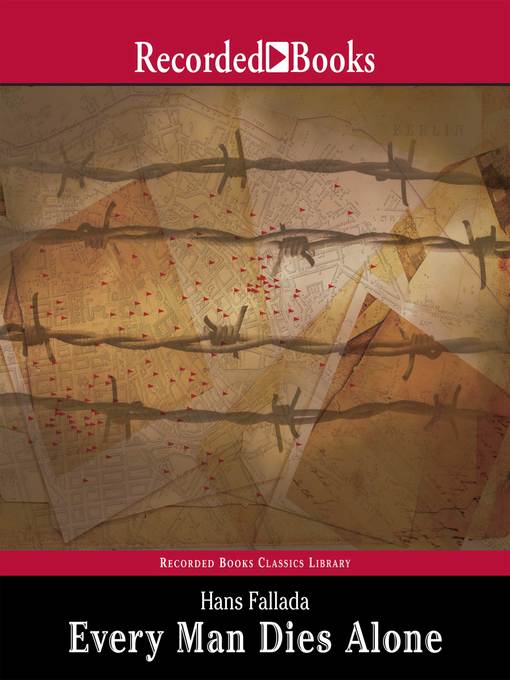
Every Man Dies Alone
فرمت کتاب
audiobook
تاریخ انتشار
2010
نویسنده
George Guidallناشر
Recorded Books, Inc.شابک
9781440790294
کتاب های مرتبط
- اطلاعات
- نقد و بررسی
- دیدگاه کاربران
نقد و بررسی

The story takes place in a tenement in 1941 Berlin. Residents of all stripes live there in fear of the Gestapo and denunciation by their neighbors. Did Frau Rosenthal jump from her third-floor window, or was she defenestrated by the police? Does someone in the building write and distribute the anti-Nazi postcards saying things like "Hitler killed my son"? George Guidall narrates the novel with a style that gives nuances of implied meaning to every phrase. Listeners can detect the characters' frequent moments of paranoia and suspicion in Guidall's voice. To each resident of the building, he gives a slightly different manner of speaking. Although translated into English, none of the characters, all German, have a foreign accent. J.A.H. (c) AudioFile 2011, Portland, Maine

Starred review from January 12, 2009
This disturbing novel, written in 24 days by a German writer who died in 1947, is inspired by the true story of Otto and Elise Hampel, who scattered postcards advocating civil disobedience throughout war-time Nazi-controlled Berlin. Their fictional counterparts, Otto and Anna Quangel, distribute cards during the war bearing antifascist exhortations and daydream that their work is being passed from person to person, stirring rebellion, but, in fact, almost every card is immediately turned over to authorities. Fallada aptly depicts the paralyzing fear that dominated Hitler's Germany, when decisions that previously would have seemed insignificant—whether to utter a complaint or mourn one's deceased child publicly—can lead to torture and death at the hands of the Gestapo. From the Quangels to a postal worker who quits the Nazi party when she learns that her son committed atrocities and a prison chaplain who smuggles messages to inmates, resistance is measured in subtle but dangerous individual stands. This isn't a novel about bold cells of defiant guerrillas but about a world in which heroism is defined as personal refusal to be corrupted.

























دیدگاه کاربران